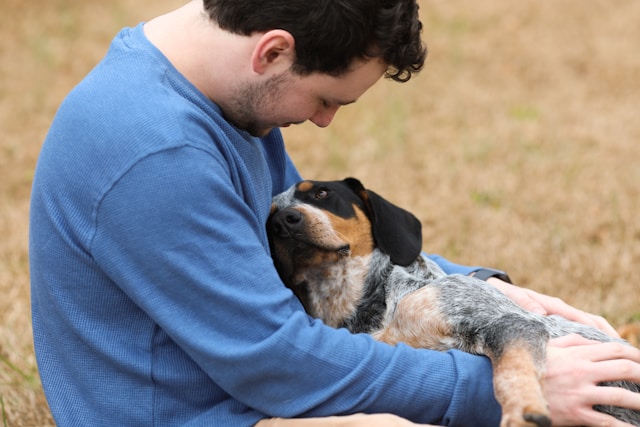
The Science of the Human-Pet Bond: Why We Love Them So Much
Whether it’s a gentle purr on your chest or a joyful bark at the door, the presence of a pet has a way of warming the soul. But what is it about pets that captures our hearts so completely? Why do we see them not just as animals, but as family?
It turns out, the connection between humans and pets runs deeper than cuddles and companionship. Science shows that the human-pet bond is built on powerful emotional and biological foundations—ones that affect our health, happiness, and even how our brains work.
Here’s a closer look at why we love our pets so much—and how they love us back.
1. The Brain Chemistry of Love
When we spend time with our pets—especially during physical touch like petting or snuggling—our brains release oxytocin, often referred to as the “love hormone.” This is the same chemical that strengthens bonds between mothers and babies or partners in romantic relationships.
Fun Fact: Looking into your dog’s eyes can increase oxytocin levels in both of you.
This hormone not only helps form emotional attachment, but also reduces stress, lowers blood pressure, and fosters trust—one of the key reasons pets feel like natural mood boosters.
2. Pets Offer Unconditional Love
One of the most comforting things about pets is their nonjudgmental presence. They don’t care how you look, what you earn, or how your day went. For many people, pets provide emotional safety and unconditional affection—especially valuable in times of stress or loneliness.
This kind of love can be life-changing, particularly for:
- Children growing up with social anxiety
- Seniors experiencing isolation
- Individuals recovering from trauma or depression
3. Companionship and Routine
Pets give us purpose and routine. Feeding, walking, grooming—they all structure our day and give us a reason to get out of bed. That structure is proven to help reduce feelings of aimlessness and sadness, particularly in people facing life transitions like retirement, grief, or empty-nesting.
Plus, the companionship they offer helps reduce the risk of loneliness-related health issues, such as heart disease, cognitive decline, and depression.
4. Pets Support Mental and Physical Health
The emotional connection we have with pets has been shown to provide real physiological benefits, including:
- Reduced cortisol (the stress hormone)
- Lower blood pressure and heart rate
- Boosted serotonin and dopamine (feel-good chemicals)
- Stronger immune function
Walking a dog regularly improves fitness. Grooming a cat can be meditative. Even watching fish swim in a tank has been shown to lower anxiety levels.
Therapy animals are now used in hospitals, nursing homes, schools, and disaster zones—evidence of just how healing the human-pet bond can be.
5. Evolution Has Played a Role
Some scientists believe our bond with animals is hardwired by evolution. Early humans who lived alongside animals (especially dogs) likely benefited from extra protection, warmth, and hunting help. Over thousands of years, humans and pets co-evolved to understand and rely on each other.
This may explain why we instinctively respond to a kitten’s meow or feel deep sorrow when a beloved pet passes away. The emotional ties are ancient, complex, and real.
6. Pets Mirror Our Emotions
Many pets—especially dogs and cats—are capable of reading human body language, tone, and behavior. They can sense:
- When you’re sad or stressed
- When you’re excited or playful
- When you’re ill or anxious
This emotional intuition helps deepen the bond, creating a sense of mutual understanding that many pet owners describe as almost human-like empathy.
It’s More Than Love—It’s Connection
We love our pets because they fulfill a fundamental human need: connection without condition. The bond we share is not only emotionally satisfying—it’s scientifically backed, evolutionarily supported, and deeply meaningful.
Photo by Cynthia Smith on Unsplash
